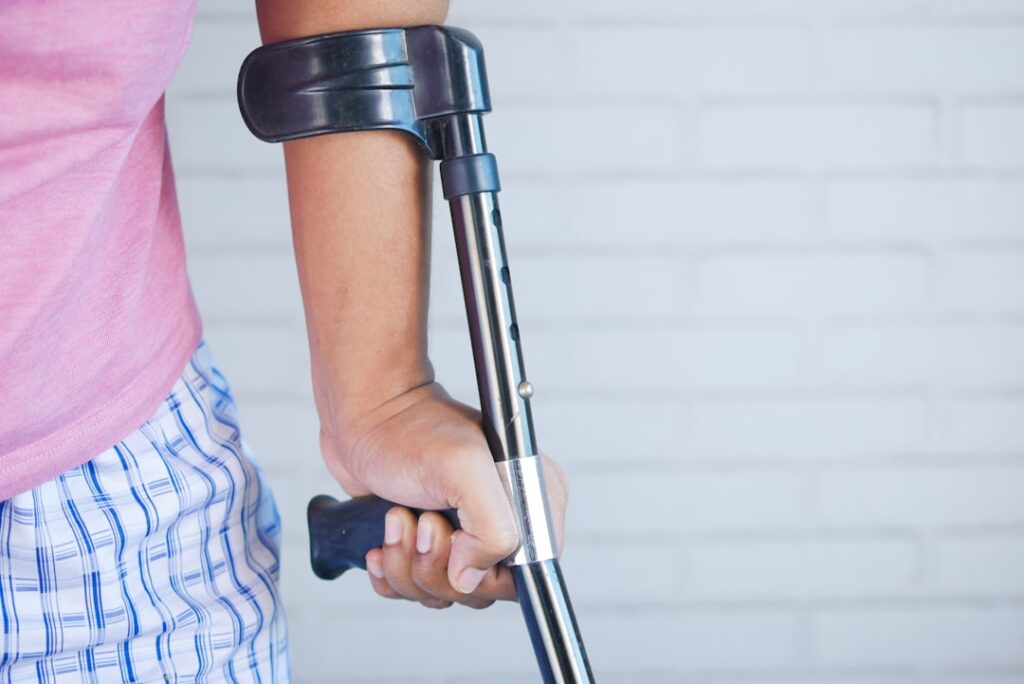Injury can be defined as a stressful situation in a person’s life or something that affects an individual adversely. Knowing what measures to take can ease the situation and safeguard one’s legal entitlements to receive adequate compensation. This article explains the subsequent stages of personal injuries to help the readers.
Consult with a Personal Injury Lawyer
One of the primary things you can do after suffering a personal injury is to consult a legal professional specializing in these cases. A reputable personal injury attorney can assist you through the process because they have adequate knowledge of the laws surrounding these types of injuries. A legal practitioner can help you with the complexities of your case, handle communications with insurance companies, and work to secure fair compensation. Most personal injury legal advocates offer a free initial consultation on a contingency fee basis. This means you won’t have to pay anything yet; they only get paid if you win your case.
When choosing a legal practitioner to work with for your case, you can ask for suggestions from your family and friends who may know of a lawyer who can help you. Alternatively, you can also explore online sources to find a legal advocate specializing in personal injury cases within your vicinity. It would help if you opted for a local lawyer who will be more adept at the laws implemented in your jurisdiction, which can differ slightly from the regulations in other locations. The legal practitioner should also have extensive personal injury cases won because then, you will have peace of mind that your case will also have better outcomes.
Seek Medical Attention
Something else warranted after sustaining an injury is that you should see a doctor. Still, you would be better off paying more attention to your health issues. You also need to seek a doctor even if you have minor injuries because some of them might be hidden. Then, adhere to the recommended medical management and maintain documents for all visits to the doctor and all other treatments and medications taken. Take your prescribed medication and see all your follow-up appointments as scheduled. This benefits your own healing and your case by proving that you are trying to get better.
Report the Incident
After suffering a personal injury, immediately notify the appropriate authorities or responsible parties. For car accidents, this means calling the police. For workplace injuries, inform your employer. For other incidents, report to the property owner or relevant party. The reports likely contain a comprehensive summary of what happened, including the contact details of all parties involved and any witnesses who saw the incident. In this case, ensure that you secure a copy of the incident report for your records. This may be handy when presenting your claim to court if necessary.
Collate Evidence
Gathering and collating sufficient evidence is necessary to build a solid personal injury claim or case. So, take photos of the scene, your injuries, and any property damage. It is even better to capture different angles and include any contributing factors, such as the weather and the road conditions, mainly for car accidents. Then, you should collect contact information from any witnesses because their statements can be crucial later. As much as possible, exchange contact and insurance information with other parties involved, if applicable, and note the details of the incident, including time, date, location, and circumstances. Keep all evidence of the incident and your injuries, such as medical records, bills, receipts, and correspondence with insurance companies.
Keep Records
You should also exert the effort to keep proper records that may be able to support your claim later on. This means maintaining a detailed record of your medical treatments, lost wages, and other expenses you incur due to the injury, recording all costs incurred due to the injury. You can also try to document your pain and suffering, emotional distress, and how the injury affects your daily life. Secure the physical documents you gather in a safe but accessible place. In parallel, you can also make a soft copy of these records for easy retrieval in case you suddenly need to present them. You can store digital copies of your documents in a hard drive or a cloud storage solution for your peace of mind.
Notify Your Insurance Company
Promptly report the incident to your insurance company immediately, even if you believe the other party is at fault. In this case, provide them with the necessary documentation, but avoid giving a recorded statement or signing any forms until you consult an attorney. Remember that insurance providers may try to downplay your injuries, making you amenable to an offer that doesn’t give justice to the injuries you sustained. They may also try to put you at fault, which means the insurance provider may not give you any compensation.
Prepare for Settlement Negotiations
Finally, prepare for settlement negotiations, but only discuss the details of your case with your attorney. Be cautious about what you share on social media, as it could be used against you. In this case, work with your attorney to determine the value of your claim, considering medical expenses, lost income, pain and suffering, and other damages. You should also be prepared for negotiations with the insurance company. Think about the long-term impact of your injury. Will you need ongoing medical treatment? Will you have permanent disabilities or limitations? These factors should be included in your compensation claim.
Carefully review any settlement offers with your attorney to ensure the offer covers all your past, present, and future costs related to the injury. Don’t rush to accept a settlement without understanding its full implications. Once you accept, you typically waive your right to further claims related to the incident. Rest assured that your attorney will handle these discussions to secure a fair settlement.
The following measures should assist you in securing your rights and getting the compensation you ought to receive after suffering a personal injury. This is wise because every case is different, and the professional legal services should be aligned to that circumstance. For more specific advice or help, you can always turn to an attorney specializing in this field of law who can advise and help you according to your situation.






